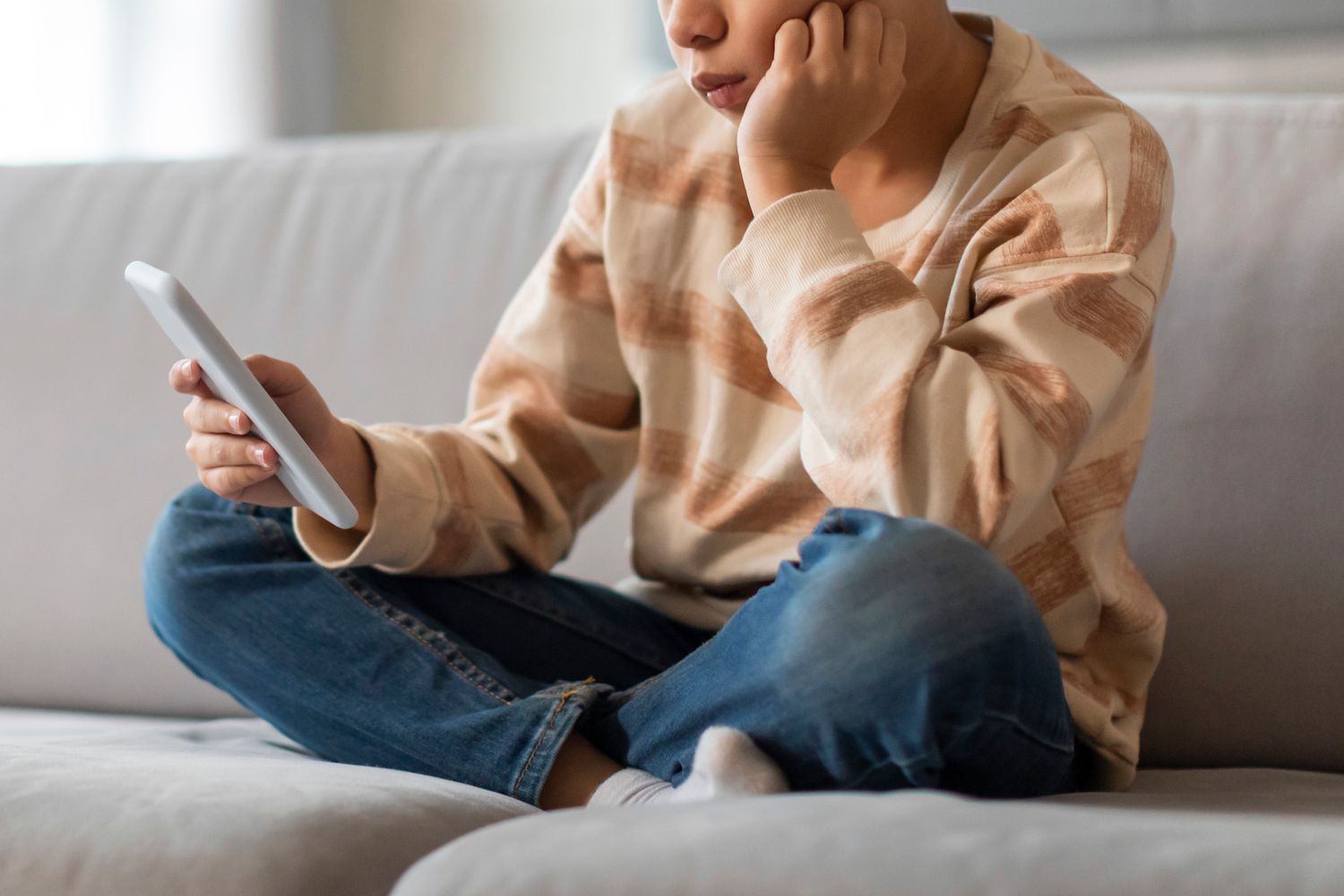Physical Address
304 North Cardinal St.
Dorchester Center, MA 02124
Physical Address
304 North Cardinal St.
Dorchester Center, MA 02124

:max_bytes(150000):strip_icc():format(jpeg)/boy-sitting-on-couch-and-using-smartphone-at-home-061025-1-89df19b95ac94d78a6c254e676d37b23.jpg)
Screen time – Specifically, time on video games – is linked to an increased risk of social and emotional Disorders in children.
An extensive study of the data from nearly 300,000 children found that ”Cutting Can contribute to socio -emotional problems, and children with these problems are more likely to use screens as a management mechanism. The effects seemed stronger for games. “The research – an extensive look at more than 100 other studies – was published in the journal Psychological bulletin.
Getty
Researchers considered “screen time” to include social media, games, television and doing homework online and found that older children – 6 to 10 years – were more likely to be adversely affected by the screen time.
“Children spend more and more time on screens, for everything from entertainment to homework to messages,” Dr. Michael Noetel, doctorate, associate professor at School of Psychology at Queensland University and one of the authors of the study, said in a press release from the American Psychological Association. “We found that increased screen time can lead to emotional and behavioral problems, and the children with these problems often turn to screens to cope.”
Discuss the study with ABC News, Dr. Tara Narula pointed out that the research looked at children who are involved with screen time in addition to the current guidelines; per it American Academy of Child and Adolescent PsychologyChildren aged 2 to 5 should have no more than an hour screen time of high quality a day. Older children are encouraged to limit the screens and turn them off to an hour before bedtime.
As the study says: “There seem to be few differences between results for children looking at 10 and 30 minutes per day. For children who exceeded the guidelines, there was a significant relationship between their cutting and socio -emotional problems.”
Getty
Dr. Narula also shared a call for parents: “One of the biggest things is just that you have to be invested, involved and aware of what happens to your children. You have to be there for them emotionally, check them out and also teach them the social life skills. You do not just want to monitor the amount but the quality of what they use it for.”
Never miss a story – register for People’s free daily newsletters Keeping up to date on the best of what people have to offer, from celebrity news to compelling stories of human interest.